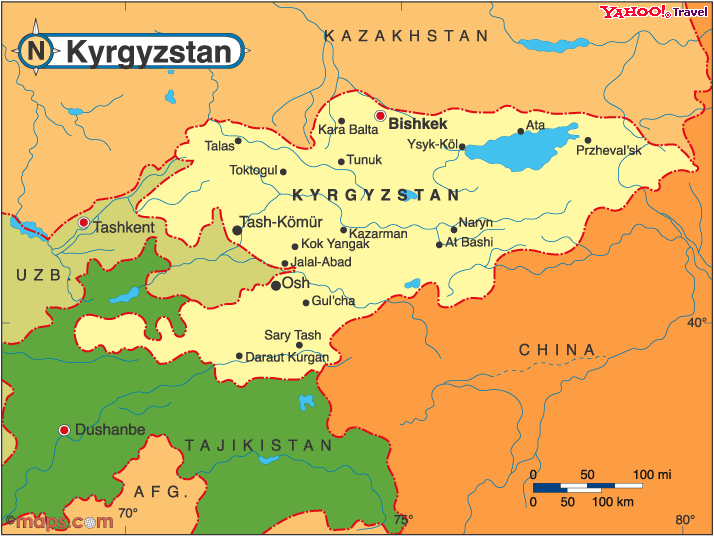Ridiculously, I often hear about big changes in Kyrgyz politics from the AP or the New York Times. I suppose that people are basically just fed up with all the backroom scheming. I'll try to illustrate why.
The current super-president is Bakaev, from Osh. Most of the government is run by his buddies. People from the North don't like this. So the North and South tussle about who gets to control the government. Some people that feel they are not getting their fair shake at governance (or non-governance?) are planning to protest in April. Bakaev has reason to be afraid, such a protest put him into power two years ago and could just as easily put him out of power.
It the countdown to the protests everyone is jockeying to shore up their exposure to political risk. Seven Ministers (of 12 or so I think) tried to resign. First people thought that Bakaev was getting rid of them to co-opt opposition protest leaders. But then he failed to endorse the resignations. So now it looks like maybe the ministers were trying clear the wreckage of Bakaev's sinking ship.
But today the NYT's reported that he has announced a new prime minister, from the opposition. Does this mean that Kyrgyzstan will be really looking at reform and move away from brinksmanship politics? or does it mean that the wobbly super-president has negotiated another few months in office? No one is sure, most don't care.
How do demonstrations topple governments when the people are universally alienated and apathetic? My theory is that things get rolling by "bought" demonstrators, literally paid to make a fuss by one side or the other. Throw in underemployment, a lack of positive male avenues in life and the resulting anger at the world and you can get a Bishkek pillaged in minutes flat.
The real moral of the story is that no one really knows what is going on and what people's intentions are. People have become estranged from political dialogue because so far all that has been served up is very superficial stuff that is not properly challenged by the weak media. For example, polygamy has actually been thrown around the parliament here as a potential idea.
Some of the pro-polygamy arguments:
"I mean, we're Muslim so we are allowed to be polygamists, right?"
"One guy I know has four wives but he is just helping out widows and stays with his family. So polygamy can be sweet and touching and doesn't have to be scary."
A real dialogue about what it means to be Kyrgyz and Muslim and what being Muslim means for policy is pretty much non-existant. That estrangement from dialogue can be dangerous as it tends to lead to reinforcing cycles of revolutions, brinksmanship and instability rather than evolution, negotiation and flexible-continuity.
As time for me winds down, there have been a lot of good-byes. I was surprised to feel sad about giving my last English classes. It's always bitter-sweet.
Some of our young climbers made it to the finals of a climbing competition. They made second and fourth place. I am hoping that the format of the competition will reinforce the message I have been lamely trying to deliver: It is not if you get to the top that matters but how you get there. After all, once you finish one climb, the only thing left to do is start another and if you always take the easy route, that is all you will be capable of. Banal and cheesy, but that is often a good indication of more than a nugget of truth.
Friday, March 30, 2007
Subscribe to:
Post Comments (Atom)


2 comments:
1. US law makers don't exactly question the underlying capitalist/christian values they operate under, do they?
2. yes, professor, challenge is always more interesting and good.
Post a Comment